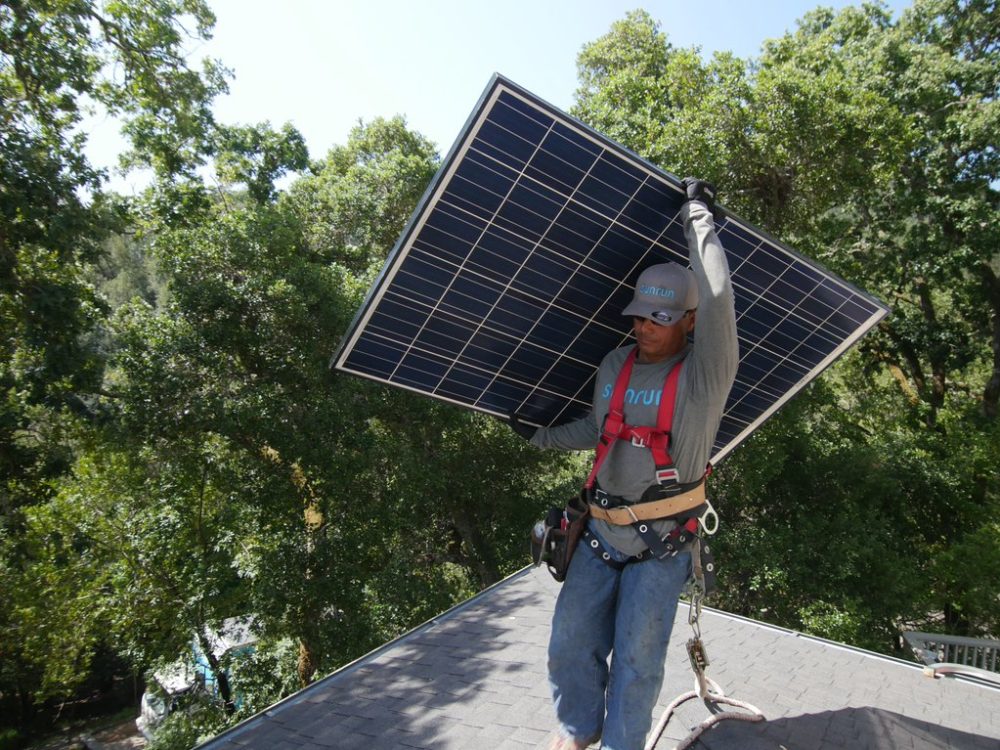Milwaukee’s Climate Plan Could Be Game Changer
Equity component of plan would create jobs for those that need them most.
After a four-year process, the Milwaukee Common Council approved, and Mayor Cavalier Johnson will sign into law, a Climate and Equity Plan that could be a game changer both for the local response to the climate emergency, and launching an economic transformation that restores shared prosperity to our most marginalized and impoverished neighborhoods.
To appreciate the magnitude of the opportunity, it is important to see it within the context of Milwaukee’s economic and racial history of the last four decades.
In the late 1970s, due to its plentiful manufacturing jobs, the national media called Milwaukee the “star of the snow belt.” Unparalleled economic opportunity made Milwaukee the last outpost of the Great Migration, the historic exodus of African Americans from the Jim Crow South. Back then, young people with a high school education or less could still secure good-paying union jobs with full benefits, learn manufacturing skills on the job, and begin a career path in which they could raise a family, and lay claim to their rightful share of the American Dream.
But history played a cruel trick on those Black industrial pioneers. Little did they know that America was on the cusp of an economic revolution, a global race to the bottom where big corporations uprooted themselves from the communities that created their wealth in search of cheap labor to exploit down south and overseas.
This was not a natural economic process. Like the existential threat of climate change it was human-made, led by a mostly white corporate elite grabbing a greater share of the economic pie and abetted by politicians of both parties. The new era of deindustrialization and deunionization, coupled with the steady toll of automation, decimated the supply of living wage careers, transforming Milwaukee from a beacon of opportunity into a massively unequal place where the entry points into the American dream were closed. Milwaukee’s well-documented fiscal challenges have their roots in the exodus of good union jobs.
The era of inequality that has gripped Milwaukee for 40 years harms everyone but the wealthy few, but the damage has been unequal. There is an old adage that when white folks catch a cold Black folks get pneumonia. Nowhere is this more true than in Milwaukee, which went from having the highest wages in the country for African Americans in the late 1970s to the major city with the largest gap between Black and white wages.
According to a 2020 report by UW-Milwaukee Professor Marc Levine, commissioned by African American Leadership Milwaukee with the support of the Greater Milwaukee Foundation: “Black median household income in Milwaukee, adjusted for inflation, has declined by an astonishing 30% since 1979. Today, Milwaukee has the lowest Black median household income, adjusted for cost-of-living differences, of any of the nation’s 50 largest metropolitan areas.”
As bad as recent history has been, we now have a golden opportunity to restore prosperity to the northside and to all of Milwaukee. The compelling necessity of heading off runaway climate change requires a rapid reconstruction of the economy to dramatically reduce greenhouse gas emissions. Like the old industrial economy, many of the green conversions we must undertake are labor intensive. If we do it right, this pending economic revolution has the potential to create tens of thousands of good union jobs for Milwaukee’s African-American community.
A green transition could reproduce the current unequal economy, or it could be shaped by thoughtful government policy to spread the economic benefits to the people who need them most. Fortunately, the city’s Climate and Economic Equity Plan is a visionary proposal to use the climate transition to create tens of thousands of jobs for the most economically marginalized Milwaukeans.
Four years ago, then-Common Council President Ashanti Hamilton and then-County Supervisor Supreme Moore Omokunde, working closely with Citizen Action of Wisconsin and our coalition partners, had the foresight to push through legislation that created the Milwaukee City-County Task Force on Climate and Economic Equity.
The diverse 13-member body was charged with developing a comprehensive plan for Milwaukee to meet global climate targets in a way that dramatically improves economic equity. The city’s Office of Environmental Collaboration (ECO) played a central role in developing the plan that was overwhelmingly approved by the Common Council.
Despite the well-documented revenue challenges Milwaukee faces, the stars may be aligned for actually achieving this audacious goal. Critically, given the Legislature’s refusal to fulfill its commitment to adequately share its revenue with the state’s only large majority-minority city, the climate conversion can be funded with federal and state resources.
President Joe Biden overcame many legislative obstacles to enact the first large-scale investments in American history to meaningfully address the climate crisis, and plans to do even more if reelected. Much of the money will come through competitive grants Milwaukee can apply for, and in individual tax credits and rebates that can be used by Milwaukee homeowners, apartment owners, and owners of commercial buildings to dramatically increase energy efficiency and to convert to renewable energy. It also will be channeled through formula funding to state agencies, giving Milwaukee an opportunity to work with Governor Tony Evers to land more resources.
This infusion of federal dollars could fund job-creating and climate-benefitting projects like the weatherization and solar energy retrofitting of thousands of homes and apartments on the North Side, building modular energy efficient new housing manufactured in Milwaukee, the weatherization and solarization of Milwaukee’s aging public schools, the redesign of our streets to better accommodate bikes, pedestrians, and bus rapid transit, and reduce reckless driving and much more. Critically, it could fund a transitional jobs program, which many experts believe is critical to reaching the long-term unemployed and those with the greatest barriers to employment, such as the formerly incarcerated.
The time is now for Milwaukee to put behind us the era of deindustrialization and massive economic and racial inequality, and become a leader in the green revolution needed to head off a global climate catastrophe. If our elected leaders vigorously pursue the bold climate transition blueprint that it just approved, Milwaukee would be at the forefront of the green economy revolution and well-positioned to reclaim its status as a beacon of economic opportunity.
Robert Kraig is the Executive Director of Citizen Action of Wisconsin, and Rafael Smith is Citizen Action’s Climate & Equity Director. Citizen Action is a statewide organizing group headquartered in Milwaukee and celebrating its 40th Anniversary this year. Smith served on the Milwaukee Climate and Equity Task Force, chairing its Economic Equity Workgroup. To get involved and connect with a local Citizen Action or organizer, go to www.citizenactionwi.org
Op-Ed
-
Wisconsin Candidates Decry Money in Politics, Plan to Raise Tons of It
 Dec 15th, 2025 by Ruth Conniff
Dec 15th, 2025 by Ruth Conniff
-
Trump Left Contraceptives to Rot; Women Pay the Price
 Dec 8th, 2025 by Dr. Shefaali Sharma
Dec 8th, 2025 by Dr. Shefaali Sharma
-
Why the Common Council’s Amended Budget is Good Policy for Milwaukee
 Nov 20th, 2025 by Alds. Marina Dimitrijevic and Russell W. Stamper, II
Nov 20th, 2025 by Alds. Marina Dimitrijevic and Russell W. Stamper, II




















